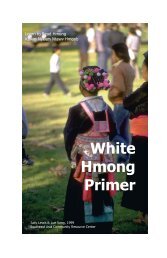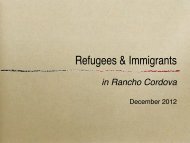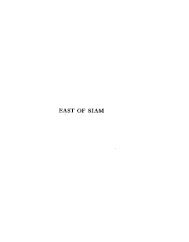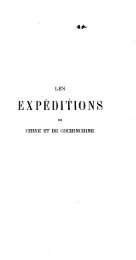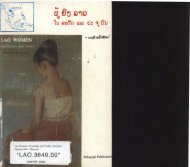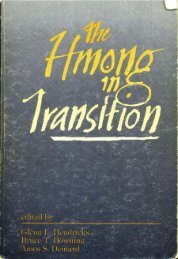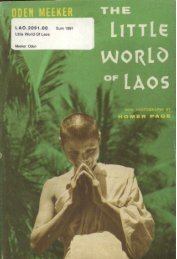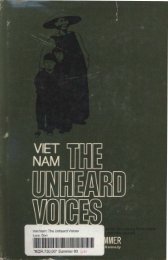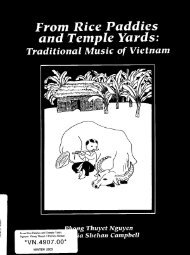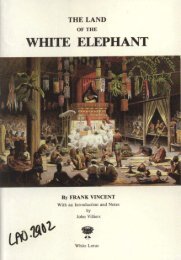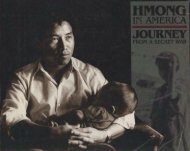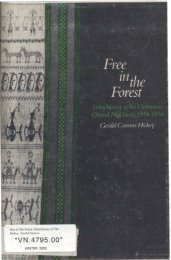PEOPLE
Grant, The Boat People - Refugee Educators' Network
Grant, The Boat People - Refugee Educators' Network
- No tags were found...
You also want an ePaper? Increase the reach of your titles
YUMPU automatically turns print PDFs into web optimized ePapers that Google loves.
was dismnible, qmially in Hong Kong and the MAN aapitalr.<br />
,',,,<br />
'<br />
This would bt ten times the flow of boat pplt between 1975 and<br />
1979; nlthwgh the figure is only a guess - and fails to take account ':<br />
of thcee who might be aught or lost at sea - it nevertheless should ' ,<br />
give evqone pause, Perhaps, indeed, that is why Viemam<br />
officials usc it.<br />
It is poasiblc that Hanoi could k persueded to 'scatter' this group<br />
of potential rdugats, by pushing some into China, some to Thdhd<br />
through Kampuchea, some into rc-cducation camps, NEZS and prcventiw<br />
detention, rs well as ejming mmt onto the high seas. Even<br />
so, the pmpca is daunting ftom the vantage point of the countries<br />
of ht asylum in Asia.<br />
By late Stptrmber 1979, the reduction in the number of boat<br />
pple leaving Vicmam had providad EI welcome breathing space for<br />
, '<br />
counerb of first asylum and for resettlement countries out~ide the<br />
region. The WHCR conference in July achieved its aim of doubling , ,<br />
the number of resettlement places on offer for refugees seeking pcr- I<br />
, '<br />
ment asylum in third countries, from 125000 to 260 000. In the<br />
weeks following the meting the pace of resettlement from the : Eon-<br />
I<br />
gestcd and inmitary camps in Asia was accelerated, easing the .': , ',<br />
pressures on most ASEM countries a litflc. In Malaysia, for example, ,,<br />
the Inddhincse refugee popuiat ion fell from 74 817 on 30 June 'I:,<br />
to 63 343 on 15 Augusta In Hong Kong there was little change, partly d%'<br />
beeau~ the slow-moving sailing junks that left northern Vietnam ,:$ i' ,<br />
continued to arrive after the clamp was ipplied, and p~rtly because ,: !<br />
sane hundreds, perhaps thousands, of Hoa who left Viemarn for :. 1<br />
chin^ in 1978 wcre unhappy there and were moving on to Hang<br />
j.'<br />
Kmg.<br />
,.<br />
In January 1979 Vietnam suggested an expanded, legal emigration<br />
system, particularly fo'r thm wishing to rejoin relatives abroad, who<br />
would fly direct to their chosen destinations, bypassing ovemowdtd<br />
amps in the ASEAH nations and Hong Kong and voiding the<br />
clangemus sea voyage mcross the South China Sea. The propma1 "<br />
seemed plausible: once the legal channel was expanded, the illegal ,<br />
exodus would dty up and eventually stop. At a conference in Djabm<br />
in May 1979, Vu Hoang, head of the consular sffairs o w<br />
in the foreign ministry in Hanoi, said he 'hoped' people could start ,<br />
leaving Vietnam at a rate of up to 10 000 a month from the end of ,<br />
June. However, by 11 September, there had been only eight flights<br />
out of Vietnam, carrying a total of 879 family reunion ases to<br />
Europe, Australia and north America,<br />
Hanoi blames lack of air tramport and insufficient co-operation<br />
from the west, especially he United States, for the scheme's slow<br />
start. However, there is evidence that the Vietnamese selection procedures<br />
are causing difficulties, When Vietnam had first announced<br />
its plan, it excluded from leaving all thost liable to compulsory milirary<br />
sentice (virtually all males between the ages of sixteen and<br />
forty), but was reported to haw dropped thi8 exclusion in negotktions<br />
with the UNHCR in May: only those whose jobs involved access<br />
to state secrets, workers for whom replacements were not yet available,<br />
and criminals and accomplices were to bt debarred. Yet in<br />
guidelines announoed later, Hanoi said the scheme would be iimjtcd<br />
to 'family reunion and othtr humanitarian cases', and that the number<br />
of such people and the speed of their dcpamre would depend<br />
on the volume of applications for exit from Vietnam and on the<br />
readiness of receiving countries to issue visas. The final say on who<br />
was to go and who was to stay would rest with Vietnam. Would<br />
many of those wanting to leave be prepared to 'wait for a plant<br />
instead of taking a boat, esptcially if hey thought thty had lirtle<br />
hope of being approvtd, mistrusted the authorities controlling the<br />
schtme, and realized they might have to wait a long time? MEAN<br />
countries wcre ~eptial that the scheme would work, although it<br />
appeartd to be trying to take their interests into account. In any case,<br />
the schtme was not of sufficient scope to deal with the potential<br />
number of refugees in Vietnam that could at any time be released.<br />
And, of course, it docs not touch tht other refugees in Indo- chin^,<br />
espially those in Kampuchea.<br />
Legal exit arrangements, such as those propostd by Hanoi, raise<br />
another issue that simmers beneath the story of the bdt people. Are<br />
the beneficiaries migrants or refugees and what are the obligations<br />
of others? The issue here involves a vital principle - a refugee has<br />
a 'well-founded fear of king persecuted for reasons of race, religion,<br />
nationality, mtmbership of a particular social group or political<br />
upinion'. Officially approved exdurr ia also a cause of political concern<br />
in the rich countries of the world. The prospect of poor<br />
countries exporting population to rich countries is not one that




